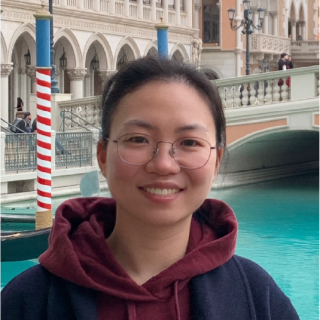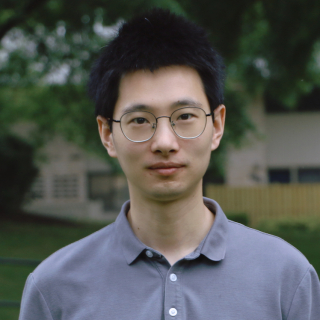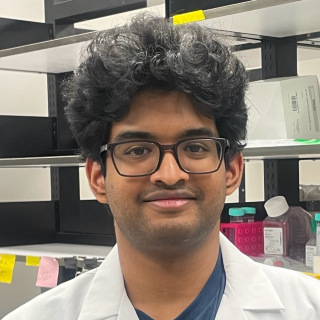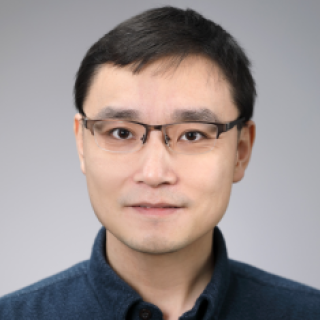
Chongyi Chen, Ph.D.
- Center for Cancer Research
- National Cancer Institute
- Building 37, Room 6044
- Bethesda, MD 20892-4260
- 240-760-7493
- chongyi.chen@nih.gov
RESEARCH SUMMARY
The Chen lab investigates the topological tension of DNA, known as DNA supercoiling, and its primary modulator, DNA topoisomerase, a key target in cancer chemotherapy. Leveraging our expertise in developing novel genomic technologies and single-cell assays, we explore how DNA supercoiling and topoisomerases interact with chromatin organization, regulating gene expression and contributing to genome instability in human cells. Our research aims to uncover the regulatory mechanisms and functional consequences of DNA supercoiling and topoisomerases in genome dynamics across various biological and biomedical processes. The long-term goal is to translate our discoveries in DNA topology and chromatin biology, along with our advanced genomic and single-cell methodologies, into breakthroughs in cancer research and medicine.
Areas of Expertise

Chongyi Chen, Ph.D.
Research
Our research focuses on DNA topology, chromatin organization, and gene regulation in human cells (COSB, 2024). We employ both traditional assays and novel genomic and single-cell technologies developed in our lab. Notably, we developed a new assay that uses azide-trimethylpsoralen to quantitatively profile genome-wide DNA supercoiling in living cells, and reported topoisomerase-modulated supercoiling domains across the human genome that colocalize with nuclear compartments and regulate gene expression (NSMB, 2024). We are investigating the formation mechanism of DNA supercoiling domains, particularly their origins in chromatin processes, their propagation along chromatin in living cells, and their regulation by different types of DNA topoisomerases. Additionally, we study their interaction with other chromatin features, including genome organization.
Our previous work demonstrated that the dynamics of chromosomal DNA supercoiling, and its regulation by topoisomerases, is the primary driver of transcriptional bursting in bacteria (Cell, 2014). We are investigating the function of DNA supercoiling dynamics and topoisomerase activities across the human genome, particularly in chromatin regulation, gene expression, and in genome dynamic processes related to DNA damage and repair that contribute to genomic instability and aberrations. This work leverages our expertise in developing advanced genomic and single-cell technologies (Science, 2017; Genome Biology, 2023; bioRxiv, 2024).
Our long-term goal is to elucidate the role and regulatory mechanisms of DNA supercoiling dynamics and topoisomerase activities in fundamental biological processes involving chromatin and DNA, as well as in disease contexts, including cancer chemotherapies targeting human topoisomerase.
Publications
- Bibliography Link
- View Dr. Chen's Publications at Google Scholar
- View Dr. Chen's PubMed Summary
Topoisomerase-modulated genome-wide DNA supercoiling domains colocalize with nuclear compartments and regulate human gene expression
A convenient single-cell newly synthesized transcriptome assay reveals FLI1 downregulation during T-cell activation
DNA topology: A central dynamic coordinator in chromatin regulation
LAST-seq: single-cell RNA sequencing by direct amplification of single-stranded RNA without prior reverse transcription and second-strand synthesis
Single-cell Whole-genome Analyses by Linear Amplification via Transposon Insertion (LIANTI)
Biography
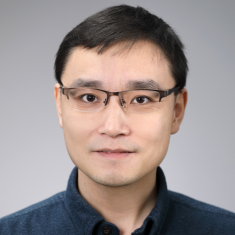
Chongyi Chen, Ph.D.
Dr. Chen earned his B.S. in biology from Peking University and his Ph.D. in biochemistry from Harvard University. During his doctoral studies in the lab of X. Sunney Xie, in collaboration with Xiaowei Zhuang’s lab, he investigated chromosome organization, DNA supercoiling dynamics, and gene expression noise in bacteria, utilizing advanced single-molecule imaging tools and the chromosome conformation capture assay. As a postdoctoral fellow at Harvard University, he was trained for genomic and single-cell technology development, and developed a new single-cell whole-genome amplification assay that enables accurate single-cell genome analyses in biology and medicine. He joined the Center for Cancer Research as an NIH Stadtman Investigator in October 2018.
Job Vacancies
We have no open positions in our group at this time, please check back later.
To see all available positions at CCR, take a look at our Careers page. You can also subscribe to receive CCR's latest job and training opportunities in your inbox.
Team
News
Learn more about CCR research advances, new discoveries and more
on our news section.
